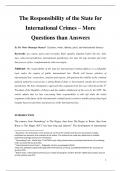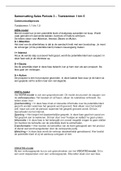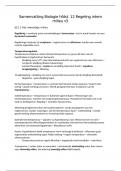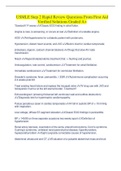Exam (elaborations)
The Responsibility of the State for International Crimes – More Questions than Answers
- Course
- Institution
criminal law has not been as smooth as one might think. State sovereignty has been at the core position of debates by international legal thinkers on the development of international criminal justice, its disillusions and prospects. The historical exploration of the same contention triggers of...
[Show more]












